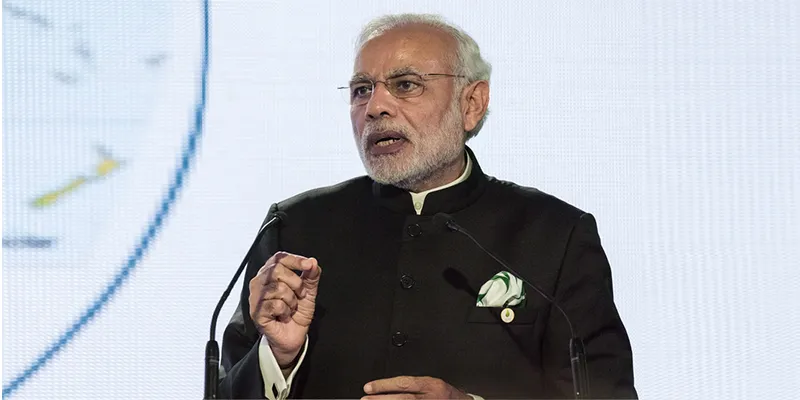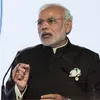PM Modi's AEIOU: ‘vowels of a new normal’ in post-coronavirus world
Urging Indians to take the lead in defining a post-coronavirus world, Prime Minister Narendra Modi outlines five principles the new business and work culture should be based on, labelling them the ‘vowels of a new normal’.
Prime Minister Narendra Modi, in a LinkedIn post on Sunday, urged the citizens of India to take a leadership role in redefining a post-coronavirus world by thinking of new business models that combine the physical world with the virtual.
Calling on the nation to become a “global nerve centre of complex modern multinational supply chains in the post-COVID-19 world”, PM Modi outlined five principles the new business and work culture should be based on, labelling them the “vowels of a new normal”.

“I call them vowels of the new normal because like vowels in the English language, these would become essential ingredients of any business model in the post-COVID world,” he said.
1. Adaptability
“The need of the hour is to think of business and lifestyle models that are easily adaptable.”
Citing digital payments as an example of “adaptability”, Modi said shop owners, big and small, should take advantage of digital tools to keep commerce connected, especially in times of crisis.
Another instance he cited was telemedicine, which has helped people get in touch with doctors without having to visit hospitals or clinics.
“Can we think of business models to help further telemedicine across the world?” he asked.
2. Efficiency
Modi touched upon a topic many all over the world are already contemplating: efficiency is not just about the number of hours one puts in at the office.
“We should perhaps think of models where productivity and efficiency matter more than the appearance of effort,” he wrote, adding the emphasis should be on completing a task in the specified time frame.
3. Inclusivity
Business models that focus on the care of the vulnerable sections of society, as well as our planet, should be an important part of the “new normal” design, the prime minister wrote.
The decrease in human activity levels over last couple of months has led to a significant fall in air and water pollution around the world.
The river Ganga in India, for example, has reportedly seen an up to 50 percent improvement in the quality of water, according to a Quint report that cited a professor from IIT-BHU, Varanasi.
“Mother Nature has demonstrated to us her magnificence, showing us how quickly it can flourish when human activity is slower. There is a significant future in developing technologies and practices that reduce our impact on the planet,” said Modi, encouraging people to do more with less.
He added that the pandemic had also highlighted the need for low-cost and large-scale healthcare, well as innovations to make sure farmers have access to information, machinery, and markets.
4. Opportunity
“Rather than playing catch-up, India must be ahead of the curve in the post-COVID world,” said Modi, adding we must think how “our people, our skill sets, our core capabilities can be used in doing so”.
5. Universalism
The coronavirus pandemic does not see race, religion, colour, caste, creed, language, or border before striking, and so, our response to it should also come from a place of unity and brotherhood, Modi said.
Echoing messages from leaders around the world, he said the coronavirus is a common challenge we’re all facing today, and that the future has to be about togetherness.
(Edited by Teja Lele Desai)








